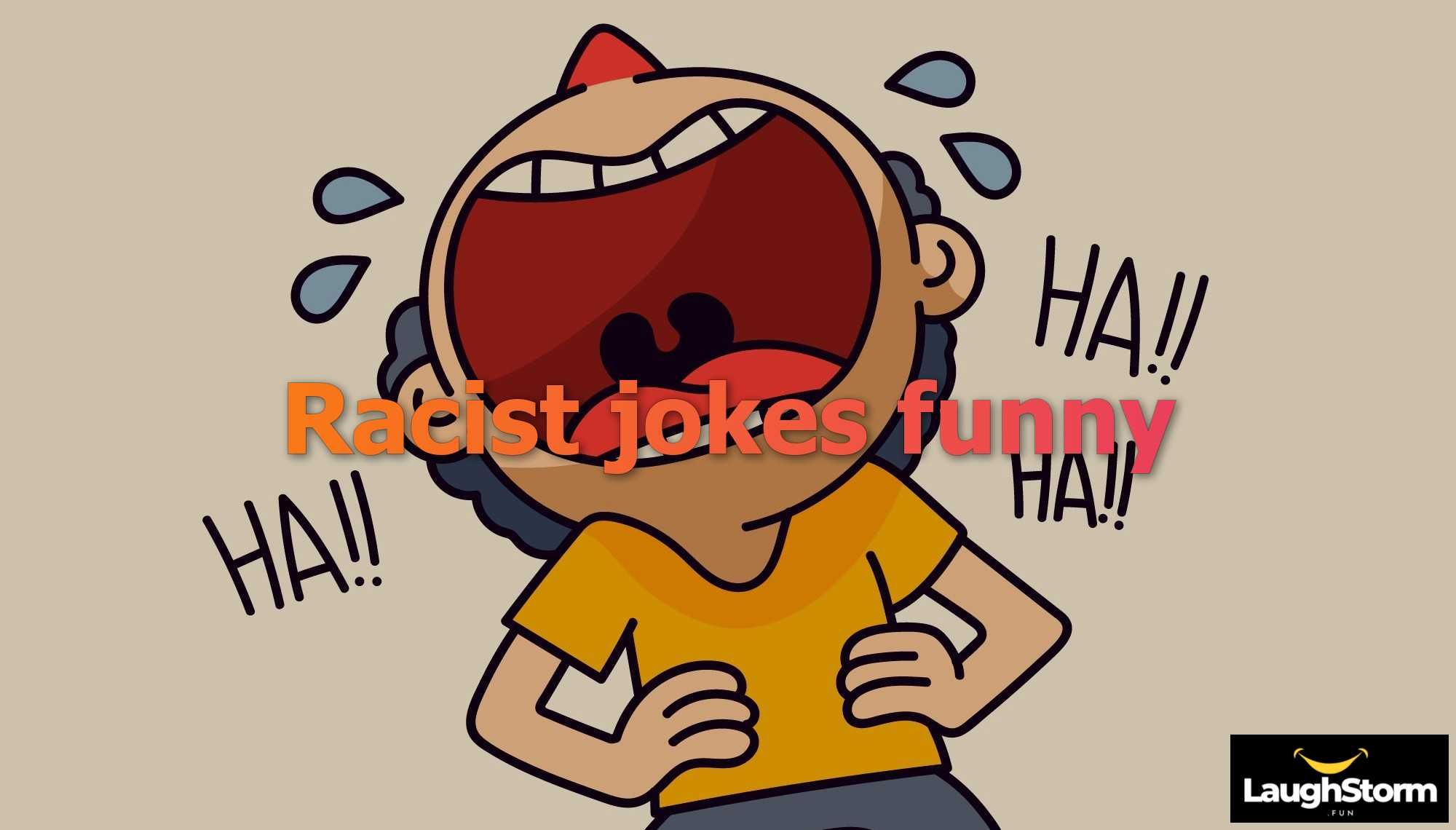In the world of comedy, humor serves as a mirror reflecting cultural standards and societal norms. While jokes generally aim to entertain and provoke laughter, the lines around humor can easily blur, especially when it comes to sensitive topics like race. The phrase “racist jokes are funny” is heavily contentious and prompts significant debate. Through this blog post, we’ll explore the nature of these jokes, their historical context, the impact they have on society, and why, despite any perceived humor, they can often do more harm than good.
Understanding the Evolution of Humor
Humor has evolved markedly over centuries. From slapstick routines in ancient theaters to the witty stand-up comedy of today, the mechanisms of joke-telling have shifted, including the themes and subjects tackled by comedians. Historically, jokes targeting specific ethnicities or races were commonplace. For instance, during the days of vaudeville, often characterized by stereotypes, performers would imitate and exaggerate racial traits for laughs. The goal was to entertain, yet what was acceptable back then raises serious questions today.
The Role of Racism in Humor
At the core of many racist jokes is a misunderstanding or a deliberate twist on our shared experiences. They often perpetuate stereotypes that reduce individuals to simplistic, caricatured views of their culture. Jokes that draw from these stereotypes might elicit laughter in certain contexts but can hurt and alienate others. Understanding why a joke can elicit laughter requires digging deeper into its root—something often based on prejudice or unfounded generalizations about a group.
Why Some Find Racist Jokes Funny
Supporters of racist humor might argue that these jokes point out absurdities in societal norms and challenge political correctness. They may perceive this kind of comedy as a way to bring light to uncomfortable truths or use jest as a coping mechanism in a racially charged environment. However, it’s essential to recognize that laughter derived from someone else’s pain comes with built-in privileges that can easily poison our communal harmony.
The Consequences of Racist Humor
Even if a joke garners laughter, it’s crucial to consider the potential ramifications. Here are a few consequences of propagating racist humor:
-
Reinforcement of Stereotypes: Jokes that target specific races or cultures can reinforce misconceptions, contributing to a cycle of misunderstanding and prejudice.
-
Normalizing Discrimination: Repeated exposure to such content can lead to the normalization of racist ideologies, making them seem more acceptable.
-
Marginalization of Voices: In predominantly fun or light-hearted spaces, racist humor often extinguishes voices that strive towards inclusivity and harmony.
-
Hostility and Division: Even an isolated joke can contribute to a toxic atmosphere, further alienating individuals instead of fostering communal bonds.
Who Laughs and Who Gets Hurt?
One of the driving forces behind humor is shared understanding—shared experiences, laughter, and pain. When a joke is told, there’s often an implicit “in-group” dynamic at play. Those within the group may laugh while others, who are not part of that particular ‘in-group,’ may feel excluded, hurt, or offended.
Comedy without Borders: A Balanced Approach
As we navigate our understanding of humor, a more balanced approach emerges. Here are some suggestions:
-
Inclusive Humor: Focus on life’s absurdities without injecting harmful stereotypes. It’s possible to tell a funny story without at the expense of another group of individuals.
-
Self-Deprecating Humor: This type of humor invites others to laugh with the speaker in a non-threatening manner. It emphasizes our shared humanity instead of delineating divides.
-
Cultural Criticism: Blend humor with critique. Using wit to point out the absurdities of societal norms can pave the way for interesting conversations while avoiding hurtful clichés.
-
Utilizing Humor as Education: Some comedians use their platform to educate audiences about the complexities of race through insightful and humorous narratives.
The Bottom Line
While racist jokes might induce laughter in certain scenarios, it is paramount to consciously consider the broader implications of such humor. Comedy has the potential to foster connection or, conversely, to build walls. Ultimately, the choice rests within our hands.
As we delve deeper into varied forms of humor, we celebrate joyful, inclusive professional development through laughter; not just within our cultural experiences but as a delicate tapestry reflecting diversity. For those searching for light-hearted humor that encourages community bonding without dividing lines, check out these collections of Funny Christmas Jokes and Christmas Jokes Funny.
Original Jokes Using Humor Responsibly
The best laughs come from relatable experiences rather than stereotypes. Here are some light-hearted, non-offensive jokes to enjoy and share while steering clear of racial insensitivity:
-
Why did the scarecrow win an award? Because he was outstanding in his field!
-
What do you call fake spaghetti? An impasta!
-
Why don’t skeletons fight each other? They don’t have the guts.
-
What did one wall say to the other? I’ll meet you at the corner!
-
Why did the bicycle fall over? Because it was two-tired!
-
How do you organize a space party? You planet!
-
Why don’t scientists trust atoms? Because they make up everything!
-
What’s orange and sounds like a parrot? A carrot!
-
Why did the golfer bring two pairs of pants? In case he got a hole in one!
-
What did the fish say when he hit the wall? Dam!
-
Why don’t programmers like nature? It has too many bugs.
-
What do you call cheese that isn’t yours? Nacho cheese!
-
Why did the computer go to the doctor? Because it had a virus!
-
How does a penguin build its house? Igloos it together!
-
Why couldn’t the leopard play hide and seek? Because he was always spotted!
-
How do you catch a squirrel? Climb a tree and act like a nut!
-
Why did the cookie go to the hospital? Because it felt crummy.
-
What kind of shoes do ninjas wear? Sneakers!
-
What do you call a bear with no teeth? A gummy bear!
-
Why was Cinderella so bad at soccer? Because she kept running away from the ball!
-
How do you make a lemon drop? Just let it fall!
-
What’s a pirate’s favorite letter? R! You might think it’s the R, but it’s the C they truly love!
-
Why did the picture go to jail? Because it was framed!
-
What do you call a factory that makes good products? A satisfactory!
-
Why did the man run around his bed? Because he was trying to catch up on his sleep!
While humor can be complex, keep in mind that laughter is best when it uplifts rather than tears down. Judiciously choosing our sources of amusement not only fosters community but also opens up pathways to understanding and empathy. So let’s share the light-hearted, the universally relatable, and the downright silly!

